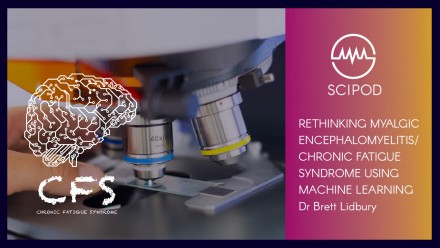No sleeping on the job: new ME/CFS diagnosis discovery
Imagine being physically exhausted all the time, but unable to find a diagnosis for your ill-health. This can be the reality for many people living with Myalgic Encephalomyelitis (ME/CFS), also known as chronic fatigue syndrome, as there is no specific test for ME/CFS. Instead, a diagnosis is made after the exclusion of a raft of other illnesses that cause fatigue.
In an exciting development, Associate Professor Brett Lidbury and colleagues have discovered a new way to way to assist the diagnosis of ME/CFS. As well as following established clinical guidelines to rule out other likely diseases, they have discovered patterns in pathology results that can provide a positive laboratory diagnosis.
“Medical practitioners will often use blood pathology results to help diagnose ill health. Historically, however, there has been no marker to diagnose ME/CFS,” says Lidbury. “Our team has discovered patterns in standard laboratory tests that identify the difference between healthy people and those living with ME/CFS.”
“ME/CFS is real, but GP’s schedules do not accommodate the lengthy diagnostic process required. Re-evaluating pathology results through our new method adds a tool amenable to 15 – 20 minute consultations,” says Lidbury.
Researchers used machine learning (also known as artificial intelligence) to crunch the huge quantities of data required to make this discovery. In addition to the ME/CFS pathology markers identified, they also found that activin B may be able to assist in determining the severity of the illness. While this discovery is also promising, further research into this concept is still required.
Approximately 240,000 Australians currently live with ME/CFS, and this exciting discovery by Lidbury and his colleagues represents a significant step forward in diagnosis and understanding the condition.
Learn more about their discovery with the SciPod podcast Rethinking Myalgic Encephalomyelitis/Chronic Fatigue Syndrome Using Machine Learning.















